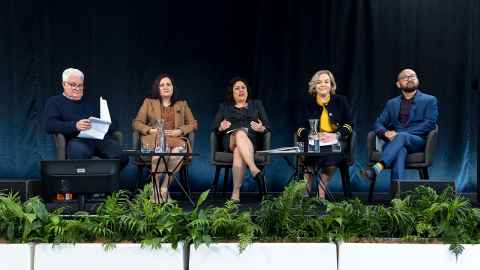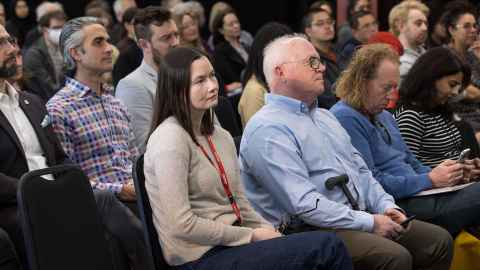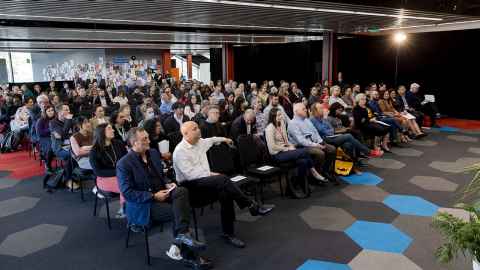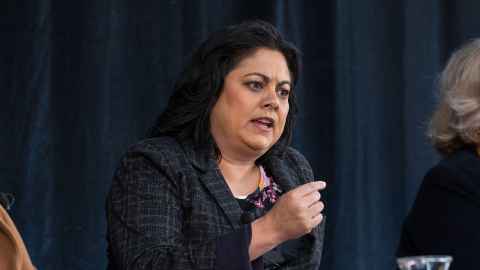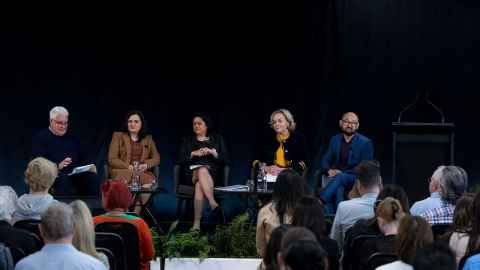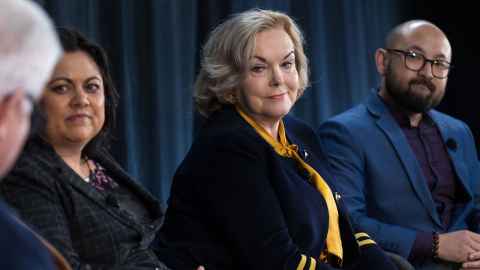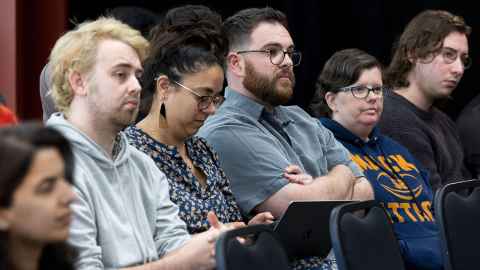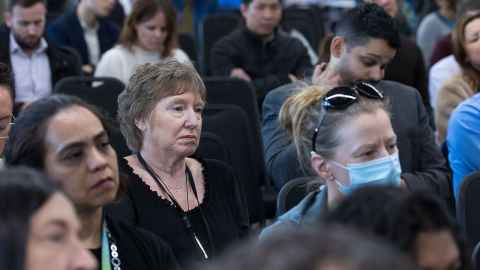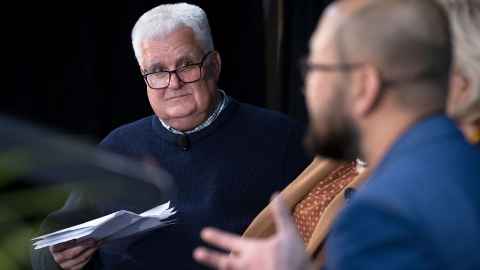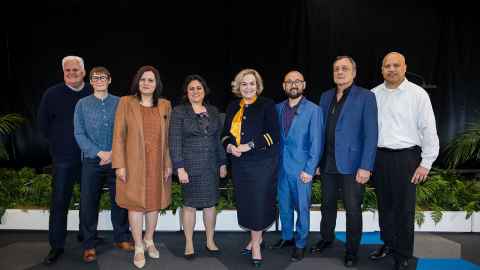Politicians unanimous in support for healthy and sustainable research sector
15 September 2023
The University of Auckland hosted the politicians responsible for research, science and innovation to share how they see the future of the research landscape.
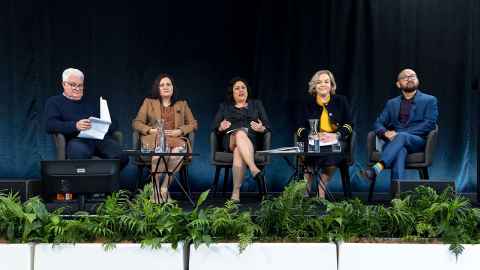
Politicians representing the four top polling parties gave their views on topics ranging from GM technology to taking the politics out of research at Shaping Tomorrow Today, an election debate hosted by Waipapa Taumata Rau, University of Auckland in the Faculty of Science yesterday.
Lifting the restraints on the use of GM technology? A resounding yes from the Hon Judith Collins, National and Dr Parmeet Parmar, ACT. A no thanks from the Greens Dr Lawrence Xu-Nan, while the Hon Dr Ayesha Verrall, Labour said this would be one of the issues explored across all its dimensions through Te Ara Paerangi Future Pathways programme
focussing on the future of the research, science and innovation system.
Mātauranga Māori? Dr Parmar said it was important to focus on ‘real science.’ The Hon Judith Collins said it was not necessary to denigrate the notion of science and lamented that science had become ‘heavily politicised.’
The Hon Ayesha Verrall strongly disagreed with Dr Parmar’s statement. She said there were opportunities in the research system to explore and research alternative knowledge systems to add to our understanding of the world.
Dr Xu-Nan said Mātauranga Māori was unique to Aotearoa and that it offered a framework to integrate science to protect the environment.
Moderator Will Charles, Executive Director, Investment at UniServices, posed the questions and moderated what was a lively if sometimes testy debate on the role research, science and innovation plays in all aspects of our society seeking to shift towards a just transition to a sustainable future.
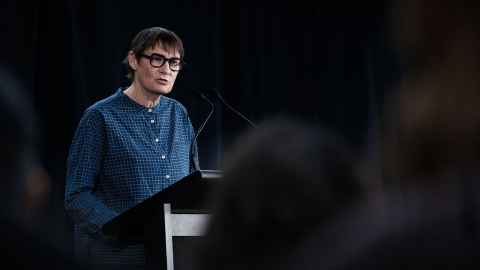
The Hon Dr Ayesha Verrall, Minister of Health, and Research, Science and Innovation for the Government, said a strong research sector enabled New Zealand and the world to “…face a ‘slew of wicked problems, from tackling climate change, to keeping our population healthy to growing economic productivity.”
The Te Ara Paerangi consultation aimed to enable the research system to have greater impact by focussing investment on new and emerging technologies and economies, by releasing researchers from unproductive competition for grants and by looking after young and emerging scientists better.
The Hon Judith Collins, the Science, Innovation and Technology spokesperson for the National Party, said science was the driver for health and well-being and industry. She promised to ‘depoliticise science’ and work for cross-party accords to build certainty and focus for the sector.
Dr Parmeet Parmar, ACT, said science should be driven by scientists. “It should be free of unnecessary political interference and bureaucratic obstacles to main integrity and public trust.”
Lawrence Xu-Nan of the Green Party offered a future Aotearoa that had reached net zero for carbon emissions well before the 2050 deadline. He wanted a research landscape where scientists and academics did not have to worry about job security, funding and spending enough time with their whānau.
The Deputy Dean of Science, Associate Professor JR Rowland introduced the debate, noting that Tāmaki Makaurau was the global front door to the country. “When it comes to scale, scope and impact, we are Aotearoa New Zealand’s research and innovation city.”
Rowland cited examples ranging from Professor Peter Hunter’s leadership of the Auckland Bioengineering Institute supporting the establishment of the research ecosystem to build the $2.1bn medtech industry, to Sir Collin Tukuitonga’s community-led approach in the early Covid response, and Professor Caroline Foster’s influence on the shape of international environmental law.
“Stuff happens here that makes a difference for the whole country. And what a difference we need to make because somehow we need to keep the lights on, the tummies full, and build social cohesion while we sort out and respond to the climate and biodiversity crises.”
Media contact: Gilbert Wong
gilbert.wong@auckland.ac.nz
Images: Chris Loufte
